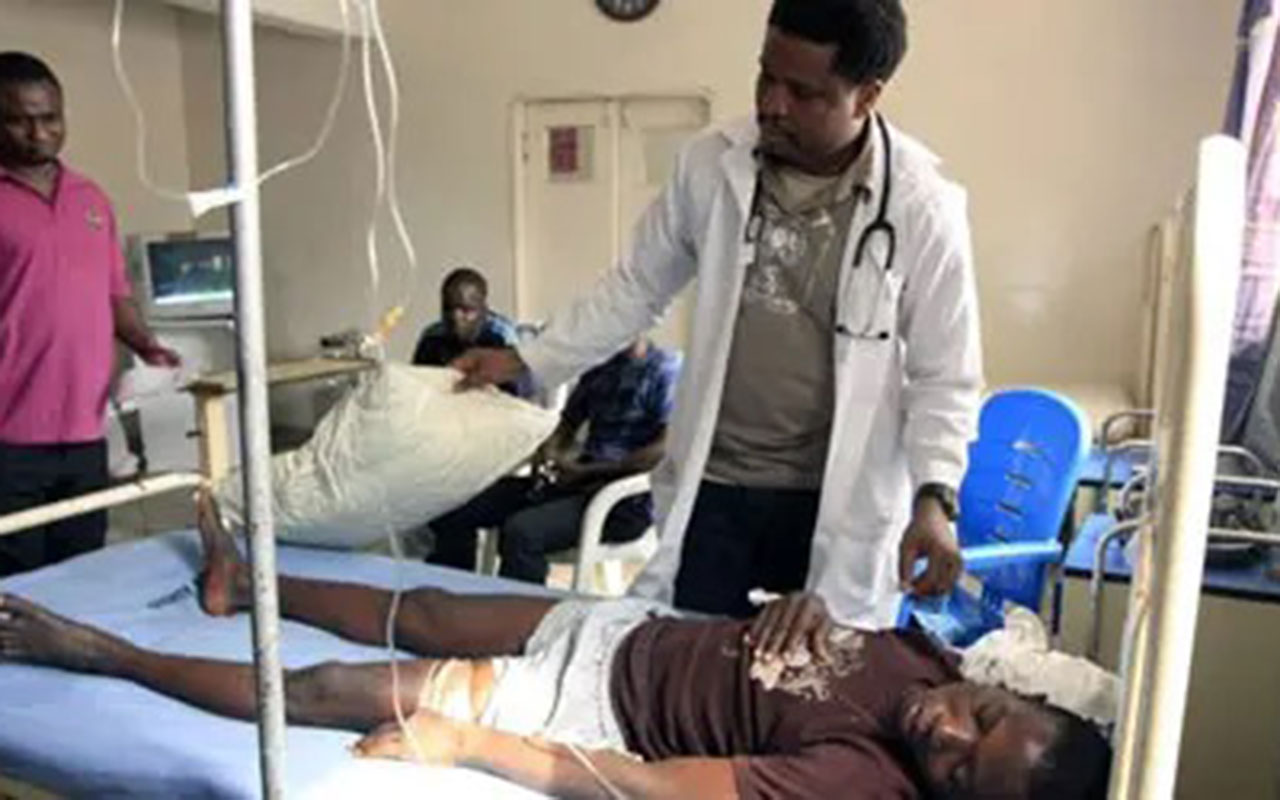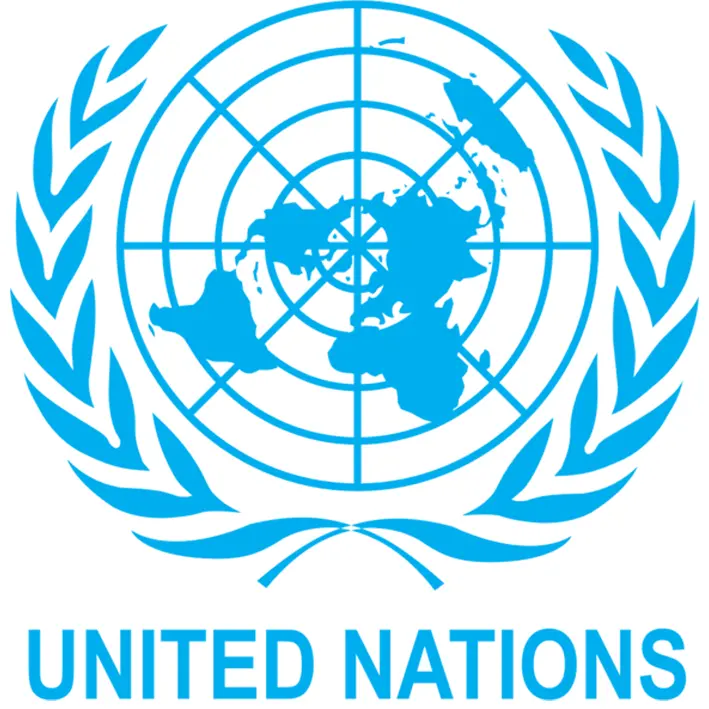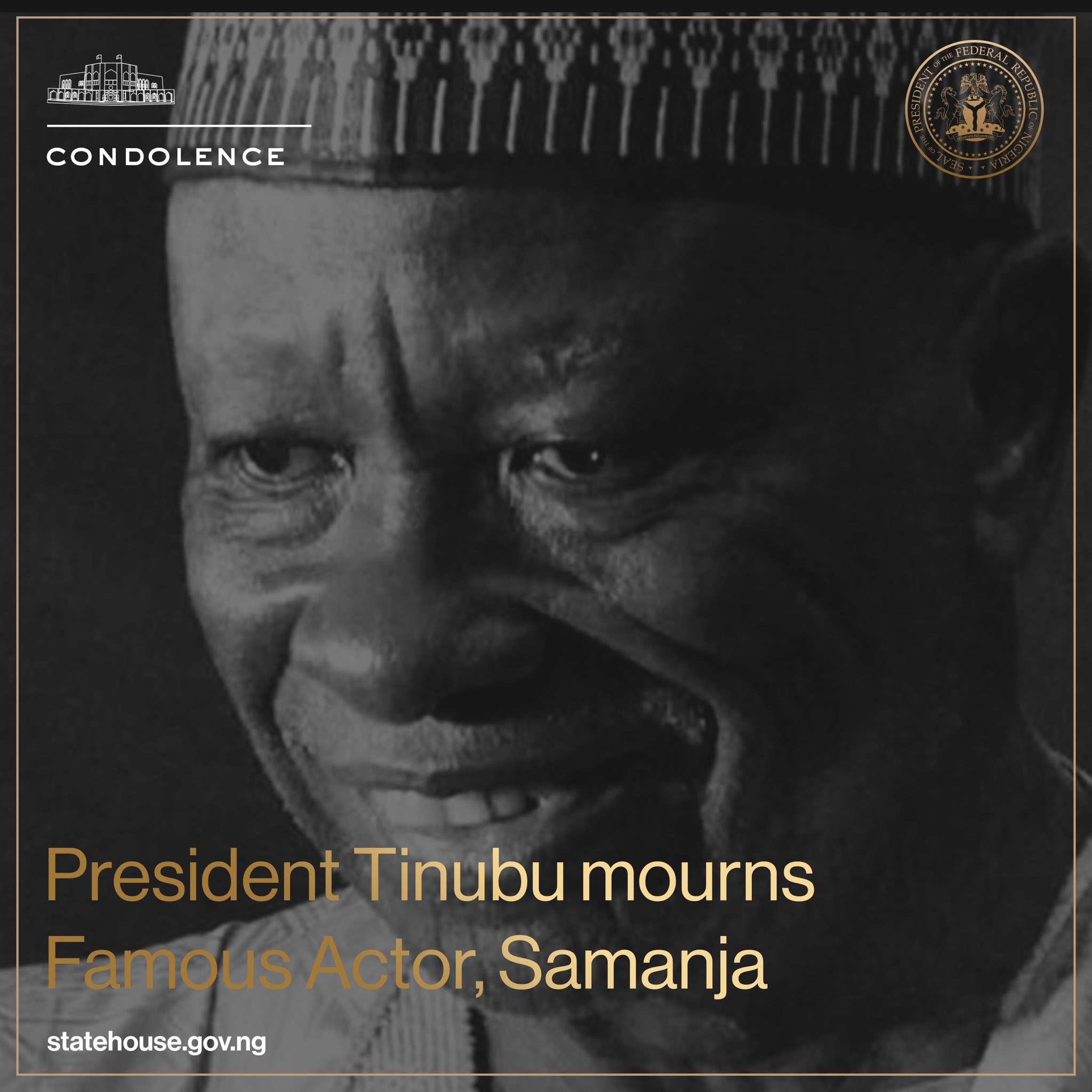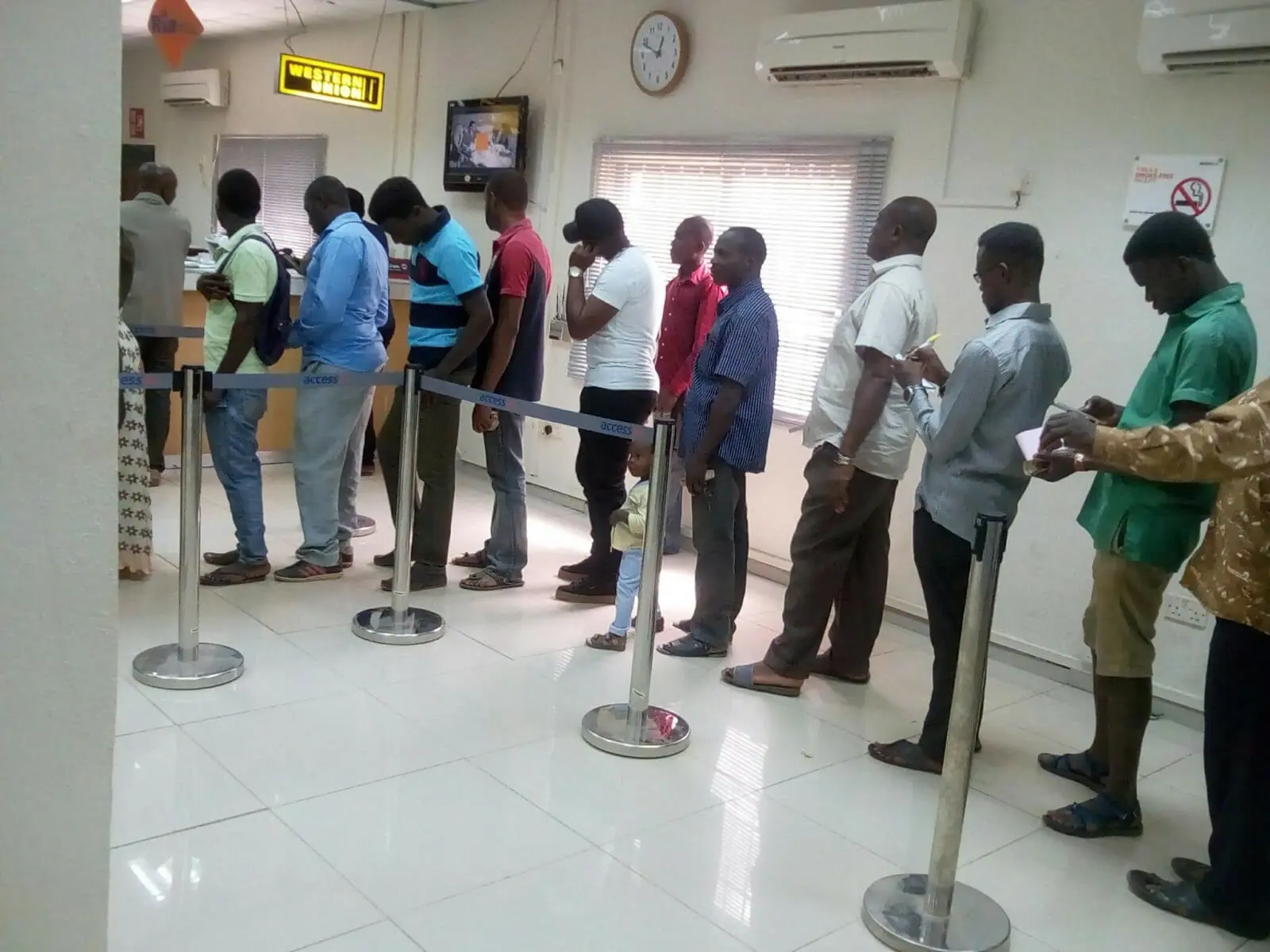Gunshot Wounds: We are ready to treat victims, health workers declare
Health professionals and security operatives have thrown their weight behind the recent directive by the Inspector General of Police, IGP Olukayode Egbetokun, to hospitals to treat gunshot wounds without requesting for a police report from the victim.
They noted that the move would save a lot of innocent lives in the country, tasking the police to restrategise on its implementation of the Act and also embark on a sensitisation campaign to take the message to every health worker in the country.
The professionals explained that the hesitation by health workers to treat gunshot victims hitherto stemmed from past experiences of their colleagues who got into police trouble just because they acted in line with the Hippocratic oath they swore to.
However, the Gunshot Act 2017, signed into law by immediate past president, Muhammadu Buhari, mandates all medical facilities to receive and accept victims of gunshots for immediate treatment without a police report.
The Act ensures that such victims receive immediate and adequate treatment whether in public or private hospitals as well as assistance from security agencies.
Section 1 establishes the right of every person with gunshot wounds to be treated and Section 2 provides for security assistance to such a person. Section 3 further prohibits any form of inhumane or degrading treatment of such a person.
Furthermore, Section 4 of the Act provides that it is the duty of the hospital to notify the police and family members of the victim while Section 5 says it is the obligation of the police to investigate the circumstances under which the person was shot.
The Act prescribes the penalties for offences related to the duties above mentioned as well as the obligation to make restitution to the victim in Section 16.
Although some states have domesticated the Act, hospitals seldom comply with its provisions to avoid being cut by the net of police operatives on the trail of criminals.
But this has resulted in the death of innocent Nigerians in need of urgent medical attention.
Recall that the media reported the gruesome death of a woman, one Greatness Olorunfemi, who was stabbed and pushed out of a moving vehicle in Abuja on September 26 by a “one-chance” robber.
Reports had it that the Maitama General Hospital, where she was rushed, refused to treat her unless a police report was provided and she bled to death.
Following the incident, a civil society group, YALI Network, Abuja, petitioned the Minister of Federal Capital Territory, Nyesom Wike, and the IGP calling for action to prevent a recurrence.
And the IGP, via an internal memo dated October 25, 2023, and signed by the Force Principal Staff Officer, Olatunji Disu, directed hospitals to henceforth treat gunshot wounds without insisting on a police report first.
The memo, which was addressed to all Deputy Inspectors-General of Police, Assistant Inspectors-General of Police, Commissioners of Police and the Commandants of Police Colleges in Ikeja, Kaduna, Oji-River, Maiduguri and Enugu, reads: “I forward herewith a copy of letter HMSH&SW/IG/CTCV/ 10/2023 dated 3rd October, 2023, received from Federal Ministry of Health and Social Welfare on the above-underlined subject, and write to convey the directive of the Inspector-General of Police that you comply with and enforce the provisions of the Compulsory Treatment and Care for Victims of Gunshot Act 2017 without any hesitation.
“The Inspector-General of Police further directs that you make this a subject of lecture and circulate widely for the members of the public to be aware of our compliance with the National Law.”
Reacting to the directive, President of Medical Women’s International Association, Dr. Eleanor Nwadionbi, said: “I will speak from the context of a medical doctor and one who is bound by the Hippocratic oath, which sets out our professional conduct and obligations regarding the ethics of our profession. We pledged to first ‘do no harm’ and uphold ethical standards in our practice of medicine with integrity, humility honesty, and compassion.
“However, it is important to say that in the practice of our profession, we do not work in isolation and we are guided by laws and policies and influenced by the environment in which we operate. All stakeholders involved in keeping our citizens safe and ensuring their well being should come together and have a crucial conversation. So, it is not just about the police in isolation, but our medical institutions, the medical personnel, lawmakers, etc so that it is a holistic response.”
To reproductive healthcare physician, Dr. Chioma Nwakanma-Akanno, “not all hospitals reject gunshot victims, especially since the enactment of the law in 2017.”
He added: “However, there are still a lot of hospitals and clinics that reject gunshot victims, or maybe not just be outright rejection, but delay. I think the major reason will be first, ignorance of the law, which is no excuse. A lot of people are not aware for whatever reason, about this law; it’s not been well publicised, but that’s no excuse.
“Every hospital administrator should do their best to communicate whatever changes and new recommendations that come up to members of their staff.
“Another reason would be because of maybe past experiences in the hospital, or personal experiences of members of staff of the hospital or what they’ve generally heard of people’s cases with the police.
“Most times, when gunshot victims come and they are treated, and the police is involved, sometimes, the hospitals can get in trouble. They just do that because they don’t want to get into trouble with the law, and the police. They don’t want to be seen as ‘accomplices’ to this, which for me is ignorance of the law.”
Nwakanma-Akanno noted that ignorance of the law on the part of law enforcement agencies is another reason hospitals do not treat gunshot victims because they do not want to get into trouble.
“There are lots of laws that we know exist in Nigeria, including bail being free, but how many of them are being enforced? So, that ignorance on their part, and lack of enforcement of these laws on the part of the law enforcement agencies, or whoever is responsible, is another reason hospitals tend to go this way.”
On how the police could nail defaulters and get them punished in line with the law, she said that anything that costs a life should be paid for.
“Whoever is found liable or defaulting should face the law. The law enforcement agencies, I’m sure have their mandate on how they enforce those laws, so, I’ll just say they should go about it the right way. But ultimately, whoever needs to face the law has to dance to the music. If you need to sue the hospital, do so. Sue the doctors, the healthcare professionals, who are defaulting. Patient Bill of Rights is a national law, so anyone defaulting should face the music.
“This move will save lots of lives. I must applaud the IGP for following up with this, given the recent occurrences and happenings with gunshot victims in the country. I like the fact that he brought this up again, and in the heat of the moment.
“In public health, we would tell you that education is the primary level of prevention. Awareness and education are going to ultimately save millions of lives. Not just the victims, but people around will know the law, and be able to demand justice with the law.
“We are ready to comply. We will prioritise the healthcare of Nigerians. We have their best interests at heart, because we are also Nigerians and because nobody knows who is going to take the bullet tomorrow. It could be any healthcare professional.”
The Obstetrician and Gynaecologist, Dr. Samuel Chinwueze Johnson, said: “On a personal note, I don’t reject especially when you have the backing of the law; you have protection even if you know the person to be an armed robber. The security boss has said, ‘Accept and treat’. You’re not the one to investigate him. The only thing you do as a doctor is to refer back to the security personnel, that you have a gunshot patient in your facility, which you are already resuscitating and then they will do their duty, investigate and know whether after treatment they will need to pick up the person and that is not within their jurisdiction to decide.
“Since the law backs up the treatment of gunshot victims, anybody that decides not to treat does so at his own risk. If the patient dies, even if he is an armed robber, the law can catch up with such a person, because the doctor has gone against what the law states. I treat, while also requesting for police report, and if there is a delay in getting such, I can now notify the police that we have such a person that we are treating, and ask them to do their investigations and advice us further on our next steps.
“If the patient is not responding to treatment, then we can refer to tertiary facilities, as the case may be, that is what I know, and what I practice. Anybody that refuses to treat because it’s a gunshot victim is doing so on a personal note. I don’t think there is any doctor who is not aware of this law, as it has been there for a long time.
“As a health professional, you should detail what you see when the victim was brought to your facility and send to the police; also give an account of your encounter with the victim. That is where your job ends.”
Johnson noted that some healthcare personnel might be scared to treat a gunshot victim because of the fear getting attacked by members of the gang if it is an armed robbery victim.
“But the IGP’s directive has cleared the fear and doubts by the hospitals. Their duty is to save lives first and if necessary, inform the police later. A gunshot victim when taken to the hospital should not worry about fees, medical insurance or police reports before being given life-saving care.
“However, most private hospitals will not treat gunshots victims as they worry about who will pay for the treatment. Are the police going to guarantee the payment? These are the knotty issues that have to be resolved for the law to be effective.
“Police can prosecute hospitals that breach the law but there is need to fill the gap on who pays for the surgery after treatment.”
For Certified Protection Officer (CPO), Frank Oshanugor said, the Compulsory Treatment and Care for Victims of Gunshot Act 2017 is a law that came into existence after about two decades of advocacy for hospitals and other medical facilities to compulsorily accept for treatment victims of gunshot and accident before asking for police report.
“The Act became necessary because Nigeria has lost many innocent lives like Bayo Ohu of The Guardian, Ebenezer Ayi of Ibadan and many others as a result of refusal by hospitals to treat them without police report. The hospital authorities had always blamed the police for arresting and harassing them for accepting to treat gunshot victims without report.
According to him, the security and social implications of the order is that first and foremost, every Nigerian naturally has the right to life.
“No one can be deprived of his life except if found guilty of any offence for which death is the penalty. The Constitution of the Federal Republic of Nigeria, 1999 as amended in Section 2 makes provision for the security and safety of persons under the Fundamental Objectives and Directive Principles of State Policy.
“The section makes it imperative for the government to provide for the security and welfare of the citizenry. This is exactly what IGP Kayode Egbetokun has set out to achieve through his order.
“Police having streamed what ought to be the duties or responsibilities of its personnel when there is an incident of gunshot and the need to take the victim to hospital, it would be clear for any one not to breach the law.
“The IGP or the police management must have put in place measures on how an erring officer would be punished. The police have procedures via the Orderly Room trial on how such erring officers and men can be punished,” Oshanugor added.
Another security expert, Mr. Christopher Oji, said: “The law on the treatment of victims of gunshot wounds has been in existence for a very long time, because successive IGPs have always emphasised on the law, but health workers have always reneged, because of the behaviours of some unscrupulous policemen, who disobey the IGP’s directives and still move against hospitals that treat gunshot victims without Police reports.
“The law says that while treating the victim, the management of the hospital should contact the police. However, some hospitals vehemently refuse to treat victims because of police extortion as some unscrupulous policemen still extort the hospitals.”
Oji noted that the implication had been the death of innocent victims either shot by hoodlums or stray bullet before a police report was obtained.
“The police response time, bureaucracy, transportation system, communication system and bad roads can affect a victim who wants treatment and he or she may give up the ghost before police report would arrive.
“The police management team should carry out enlightenment campaign by visiting hospitals or medical associations across the country to educate them on the need to commence treatment first before contacting the Force.
“The police should direct Commissioners of Police, Heads of Departments, Teams, Squads, Area Commanders, Divisional Police Officers, Police Public Relations Officers etc to carry out enlightenment campaign in their various jurisdictions. However, it is not enough for the IGP to give directives without following up with punitive measures.”








